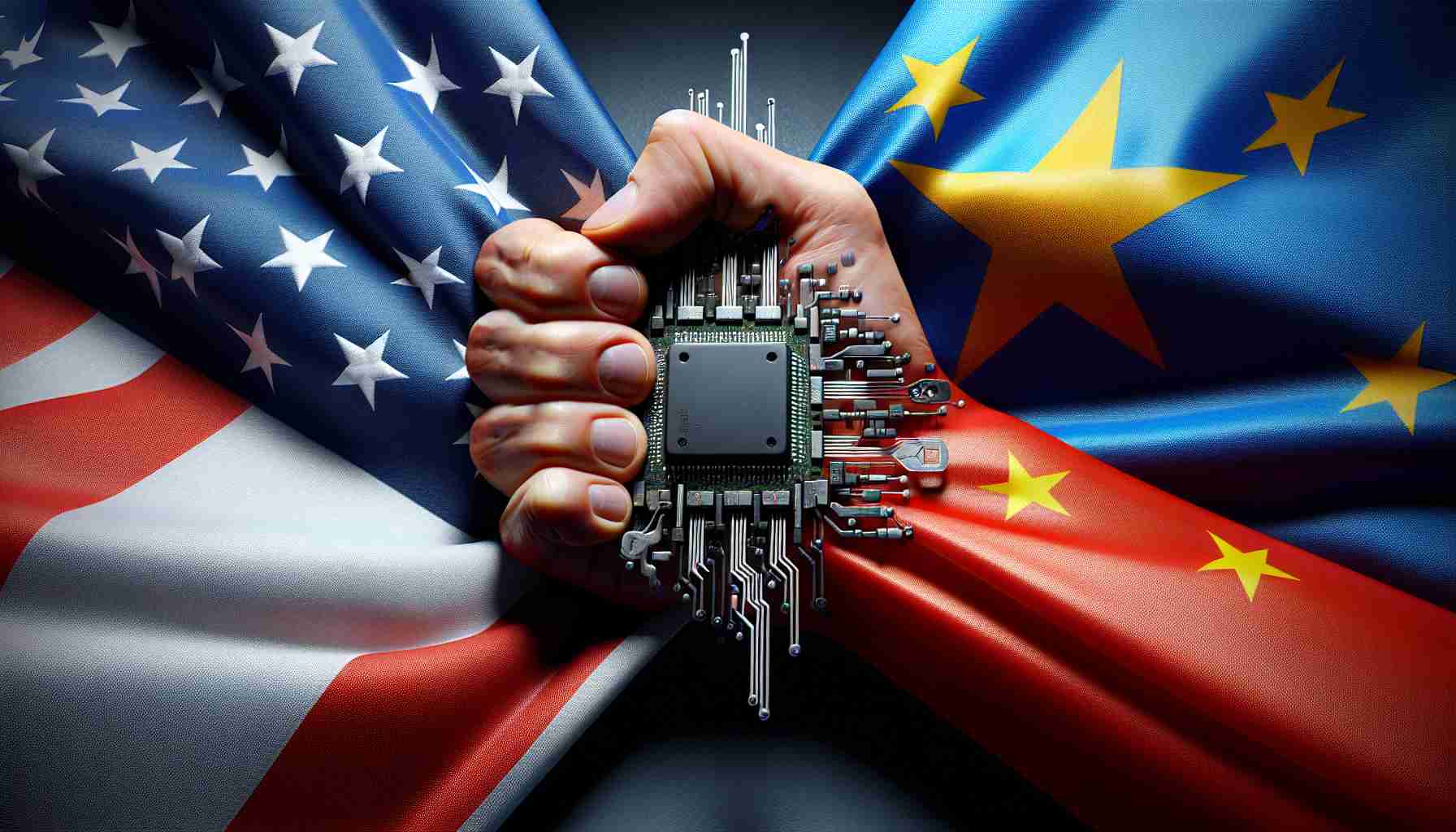The U.S. government has further escalated its trade restrictions against Chinese technology firm Huawei Technologies Co. by retracting various licenses previously granted to American chipmakers. This clampdown effectively hinders Huawei’s ability to procure semiconductors from giants like Qualcomm Inc. and Intel Corp. While this might not drastically affect current chip sales, it sends a clear message that Washington is resolved to disrupt China’s semiconductor capabilities.
The move to revoke these licenses is a strategic attempt to impede China’s advancement in critical areas such as artificial intelligence. It’s part of a broader U.S. strategy to exert pressure on Chinese tech enterprises, especially after Huawei was blacklisted in 2019. The U.S. Commerce Department has confirmed the pulling back of licenses. However, the scope and details of these new restrictions remain under wraps, reflecting the intricate nature of the crackdown.
Semiconductor supplier Qualcomm has acknowledged a decline in its dealings with Huawei, primarily limited to 4G technology components, and foresees a potential halt in business. Similarly, chipmaker Intel reports only a minor impact, as Huawei constitutes a smaller slice of its market.
Amidst these developments, the U.S. is rallying its allies—including Japan, the Netherlands, South Korea, and Germany—to join forces in regulating the sale of chip manufacturing tools to Huawei. This unified stance aims to impede the tech giant’s access to essential semiconductor technology, thereby reducing its global market influence.
Reinforcing this direction, key Republican politicians have openly called for more rigid actions against Huawei. The revelation of a Huawei smartphone with a Chinese-made processor during Commerce Secretary Gina Raimondo’s visit to China added to concerns about compliance with U.S. regulations.
The Biden administration is currently probing the origin of the chipset in question, sourced by Huawei, to determine if there’s a breach of U.S. laws—particularly its ties with Chinese chipmaker SMIC.
This tightening of licenses underscores the challenge of curtailing semiconductor technology transfer in an interconnected global supply chain. Without a doubt, this is a strategic move by the U.S. that emphasizes its determination to defend national security and techno-economic leadership against foreign reliance and possible technological encroachment.
In response to the article “United States Intensifies Pressure on China by Canceling Key Semiconductor Licenses,” several related questions and issues come to the fore:
What are the key challenges and controversies associated with the U.S. canceling semiconductor licenses for Chinese firms?
The principal challenge lies in the execution and maintenance of technology export controls without harming U.S. business interests. American chipmakers are impacted as they lose access to one of the world’s largest markets. Moreover, complexities arise when defining the bounds of what technology levels are acceptable for export, as rapid innovation can quickly render regulations obsolete.
Another controversy involves the global nature of the semiconductor supply chain. Efforts to restrict chip exports to China might encourage the development of a parallel, independent Chinese semiconductor industry, which could compete with U.S. firms in the long run.
What are the potential advantages and disadvantages of this strategic action?
Advantages:
1. National Security: By restricting chip exports, the U.S. can directly limit China’s military modernization and surveillance capabilities, aligning with national security objectives.
2. Tech Leadership: Maintaining and advancing U.S. technological leadership by denying China access to cutting-edge semiconductors is seen as crucial to economic and military advantage.
3. Alliance Building: Forging a united front with allied nations strengthens the U.S.’s position in negotiations and global policy-making on tech trade.
Disadvantages:
1. Economic Impact: U.S. chipmakers could suffer financially from reduced sales, and the industry might face revenue declines from a significant market.
2. Supply Chain Disruption: Trade restrictions can cause a reconfiguration of the global semiconductor supply chain. This leads to inefficiencies and may hurt the companies that rely on globalized production.
3. Escalating Tensions: Such actions can exacerbate U.S.-China relations, leading to potential retaliation that might extend beyond technology into other trade or geopolitical areas.
The broader implications include the possible decoupling of technology sectors between the U.S. and China, leading to increased costs and reduced global cooperation in technology and scientific research.
In terms of finding additional information from reliable sources, one might look into the main domains of reputable news outlets, trade associations, and government agencies. If one were to seek related information, reputable source domains would be presented as:
– U.S. Department of Commerce
– The Wall Street Journal
– The New York Times
It’s important to scrutinize these URLs with caution to ensure they are indeed valid and lead to the desired sources. It’s also worth noting that when doing further research, URLs to specific subpages can extend beyond what is demoed here for the main domain.
